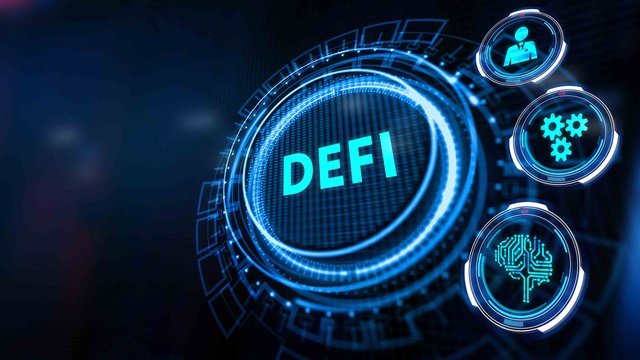Decentralized Finance (DeFi) has become one of the most exciting and rapidly growing segments of the blockchain industry in recent years. DeFi offers a new paradigm for financial services, built on decentralized, open-source networks that allow for peer-to-peer transactions without the need for intermediaries. In this blog, we will explore what DeFi is, why it matters, and some of the key trends and developments in the space.

What is DeFi?
DeFi is a broad term used to describe a range of decentralized financial applications built on blockchain networks. These applications aim to disrupt traditional financial systems by providing decentralized and trustless alternatives to traditional financial services. Some of the most popular DeFi applications include decentralized exchanges (DEXs), lending and borrowing platforms, prediction markets, and insurance platforms.
Unlike traditional financial systems that rely on intermediaries such as banks, brokers, and other third parties, DeFi applications operate on decentralized networks that allow for peer-to-peer transactions without intermediaries. This makes DeFi more transparent, efficient, and accessible than traditional financial systems, which are often opaque, slow, and expensive.
Why Does DeFi Matter?
DeFi has the potential to revolutionize the financial industry by providing decentralized and trustless alternatives to traditional financial services. By eliminating intermediaries, DeFi applications can reduce costs, increase efficiency, and provide greater financial inclusion for people who are underserved by traditional financial systems.
DeFi also offers new opportunities for innovation and experimentation in financial services. With open-source networks, anyone can create and deploy new financial products and services, leading to a vibrant and diverse ecosystem of applications and services.
Finally, DeFi has the potential to promote financial sovereignty by allowing individuals to control their own financial assets and participate in financial services without the need for centralized intermediaries. This has significant implications for privacy, security, and personal freedom.
Key Trends and Developments in DeFi
Growth in Total Value Locked (TVL)
One of the most significant trends in DeFi is the growth in Total Value Locked (TVL), which refers to the total value of assets locked in DeFi applications. In September 2021, TVL in DeFi applications surpassed $100 billion for the first time, up from just $1 billion in early 2020. This growth reflects the increasing adoption of DeFi applications and the expanding range of services available.
Expansion of DeFi Services
As DeFi continues to grow, we are seeing the expansion of services beyond traditional financial applications such as lending and borrowing. New DeFi applications are emerging in areas such as gaming, social media, and healthcare, providing new opportunities for innovation and experimentation.
Integration with Traditional Finance
As DeFi gains mainstream adoption, we are also seeing increased integration with traditional financial systems. For example, major financial institutions such as Visa and JPMorgan have announced partnerships with blockchain companies to explore the use of blockchain technology in their services. This integration has the potential to bring DeFi to a wider audience and increase its impact on the financial industry.
Regulatory Challenges
As DeFi continues to grow, it is also facing increasing regulatory scrutiny. Governments around the world are grappling with how to regulate DeFi applications and ensure that they comply with financial regulations. While some see this as a threat to the decentralized nature of DeFi, others see it as an opportunity to create a more stable and secure regulatory framework for the industry.
Conclusion
Decentralized Finance (DeFi) is one of the most exciting and rapidly growing segments of the blockchain industry, offering a new paradigm for financial services built on decentralized, open-source networks. With the potential to reduce costs, increase efficiency, and promote financial inclusion and sovereignty, DeFi has the potential to revolutionize the financial industry. As DeFi continues to grow and evolve, we can expect